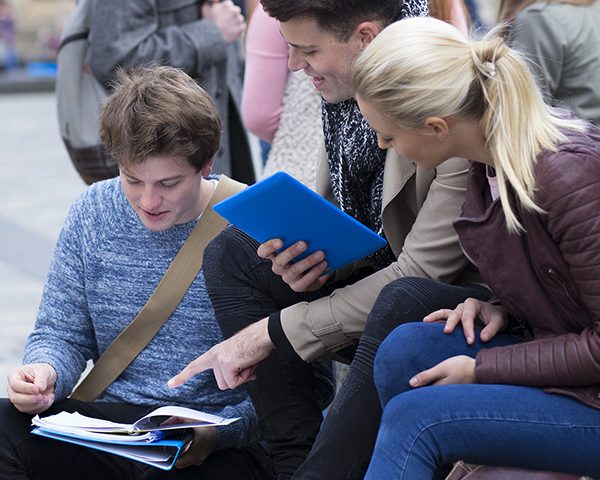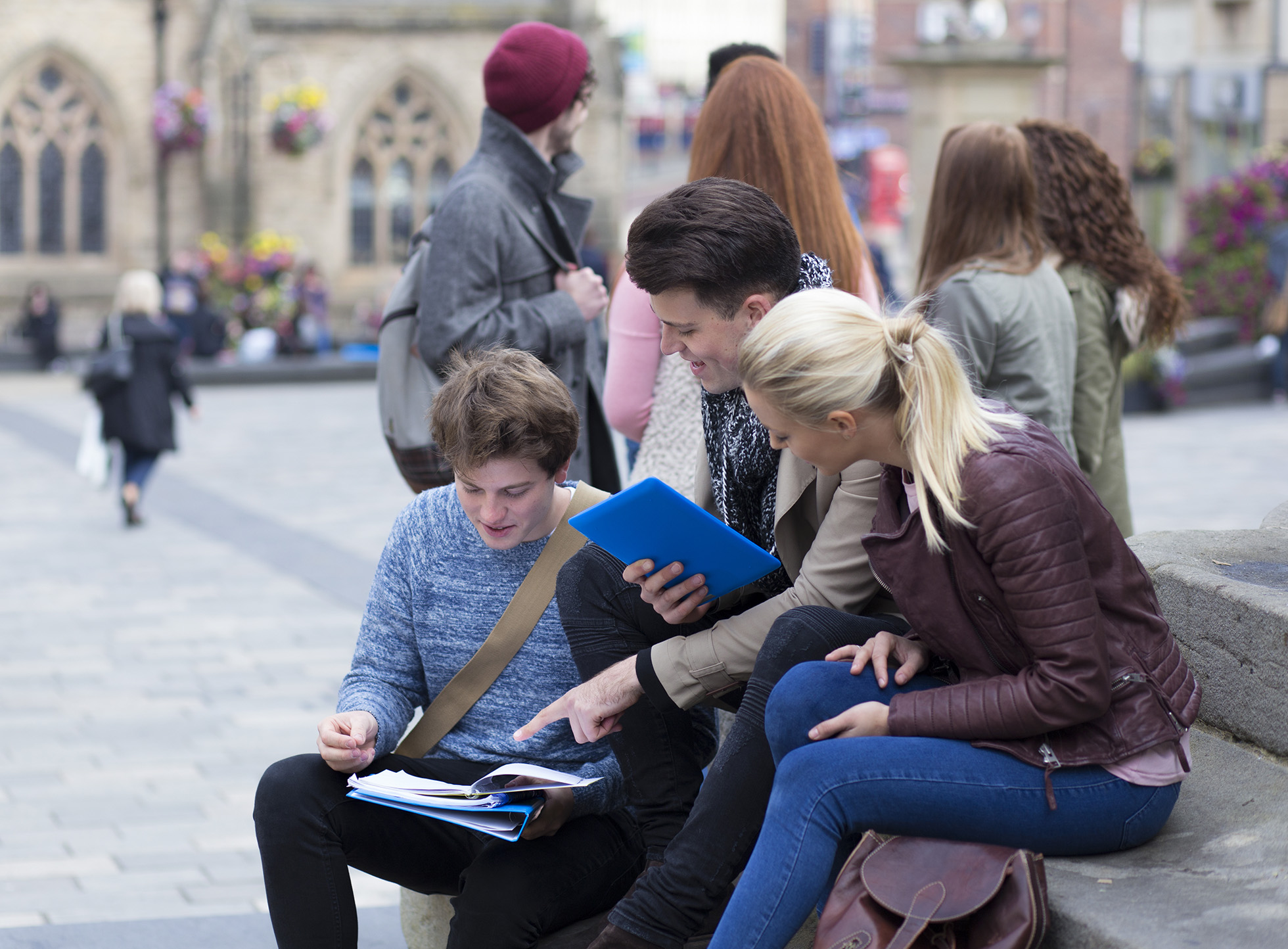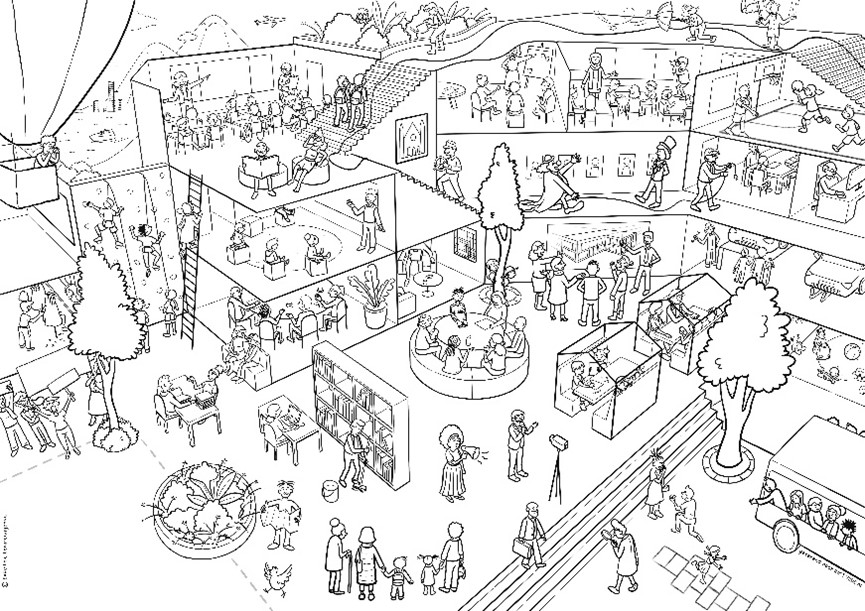Topics studied in a Self-study-group

Adolescence psychology in school-based teacher education
January 15, 2018
Zipping as professional learning
February 7, 2018Topics studied in a Self-study-group


In my earlier blog (Learning about inquiry), I described the process and the ‘rules’ in a self-study group I am hosting. In this blog I will give some examples of the topics that are studied by the participating teacher educators. I do this through unfolding small ‘portraits’ of the participants about their professional journey (see Loughran, 2014).
Portrait 1: Jacob
Jacob is a teacher educator who is involved in coaching and guiding student teachers in their practical work experience (internship). He visits student teachers at the school where they are teaching and has conversations with them about their concerns and their teaching.
In these conversations, Jacob wants to encourage the student teacher to reach a deep level of reflection. According to the theory of Korthagen (2002), reflection is an important issue for the professional development of student teachers.
Reflecting on his own work, Jacob wants to know more about the way he is performing in these conversations. Does he ask the right questions, is he challenging the student to reflect?
So Jacobs research question is: ‘what kind of questions do I ask when I have a conversation with a student?’
The theoretical framework behind his self-study is derived from Korthagen (2002). Based on Korthagen, Jacob defines a range of questions on different levels, each level probing deeper into a reflection modus (the ‘onion’-model).
Jacob decides to video record three of his conversations with student teachers. He analyses the video recordings thoroughly with regard to his own phrasing of questions. He carefully writes down the exact wording of his questions and compares these transcripts with the onion-model. The analysis reveals that in all three conversations, all levels are present. Another finding was that, although Jacob had expected beforehand to pose more questions on the deepest level, this was not the case.
Summarizing his findings, Jacob concludes that his self-study helped him to become more conscious of his questioning in conversations with students. He has also seen that he is capable of addressing all levels in a conversation. For the near future, he intends to stay conscious of his way of questioning. He also intends to start a new self-study trajectory, in which he wants to focus on the impact of the conversations on the students.
Reference
Korthagen, F.A.J. (2002). Docenten leren reflecteren (Teachers learn to reflect). Soest: Nelissen.
Portrait 2: Evelyn
Evelyn is a teacher educator who is working in the language department. She is supervising student teachers’ practitioner research. Throughout the years, she has noticed that student teachers find it very difficult to write a research report. It takes Evelyn a lot of effort to help student teachers in this process and she wonders what she can do to make her efforts more worthwhile.
Then Evelyn attended a mini-conference where a keynote was delivered on ‘giving feedback’. Immediately, her attention was drawn to this topic. She then starts to read Hattie and Timperly’s work on feedback and realises that there are several types of feedback: feedback, feed-up and feed forward, and that all these types can either be directed towards the task, the process, the self-regulation or the person.
After having read this, Evelyn is curious about her own feedback-routines. Her self-study is directed towards the question: what kind of written feedback do I give to my students?
For her self-study she takes a closer look at her written feedback on the reports of 7 students she has supervised last year. First, she develops a framework in which the different types of feedback are distinguished. This already helps her in understanding the differences between the various types. Then, for each report of the 7 students, she is scoring the feedback she has given and matches this to one of the categories.
The process of scoring reveals that she has often been giving feedback on the task. She did give some sort of feed-up and feed-forward, but both these categories are less often present. Her analysis helps her to evaluate her role as supervisor. With some adjustments in the type of feedback, she might help students better. She now realises that also in conversations with students about their work, the feedback could be more directed towards the process.
Evelyn talks about her findings with her colleagues and discovers that they also struggle with their supervision tasks. This leads Evelyn to present her findings and her framework and this is the start of a professional conversation in the team about this topic.
Reference
Hattie,J. & Timperly, H. (2007). The power of feedback. Review of Educational Research, 77 (1), 81–112.
These two portraits are examples of topics derived from the teacher educators’ practice, that are worthwhile studying, because the teacher educator at stake wants to improve his or her practice. When I am supervising teacher educators in their self-study process, I always stress the fact that their subject must be related to their practice, so that the outcomes are beneficial for that practice. I also give a lot of examples of topics that other teacher educators have studied. Sometimes participants are hesitant to pick a subject that another person already studied. Then I encourage them by saying: ‘is this is a topic that is bothering you, why don’t you feel inspired by this other person? Your self-study is about improving YOUR practice, not about finding a unique topic of about winning the Nobel-prize. Just build on to this other persons’ ideas and apply them for your benefit. It all adds to building your personal knowledge base as a teacher educator’. Moreover, together we build on the public knowledge base of teacher educators.
Reference
Loughran, J. (2014). Professionally Developing as a Teacher Educator. Journal of Teacher Education 65(4), 271–283.




